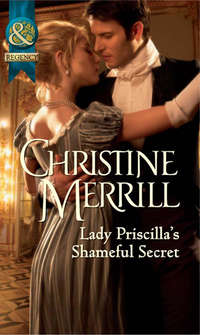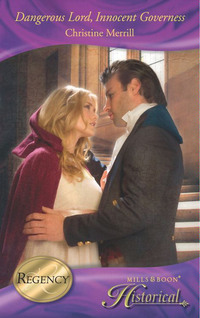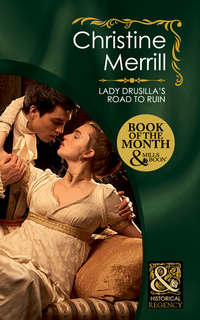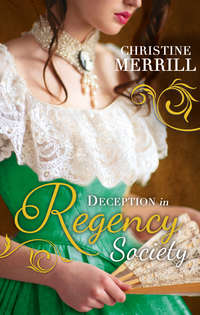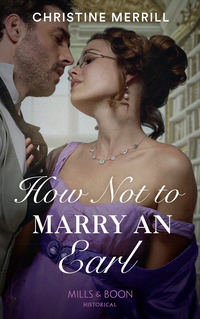
Полная версия
Dangerous Lord, Innocent Governess
Which made the truth seem all the stranger. What might Mrs Sims have said if Daphne’d admitted that she was the girl, and that her parents had no idea that she had elected to come to Clare’s home, instead of her dear aunt in Anglesey? She was supposed to remain there until such time as her behaviour was forgotten, her reputation restored and her head emptied of Clarissa Colton’s nonsensical advice.
She walked slowly up the stairs to her room. In retrospect, she had to admit that the outing to Vauxhall had been a mistake. She had been so blue, in the wake of Clare’s death. And her beau, Simon, had assured her that moping at home was no way to honour her cousin’s memory. But once she was alone with him in the dark, she suspected that Simon cared less for her feelings than his own. Her London social life had ended in a flurry of open-mouthed kisses, wayward hands and a slap that had brought her friends running to her aid. And then running just as fast to spread rumours of what they had interrupted.
As she looked at the three flights of stairs in front of her, she wished her parents could see what penance she had set for herself. Several weeks of hard work, with not a single ball, musicale or country outing to break the monotony. It had been exhausting just meeting the family and making arrangements for the position.
She suspected it was likely to be more difficult, once she began the duties she had been hired for. Although she knew nothing of teaching, she must begin proper lessons directly, or someone would become suspicious.
Unless there was no one who cared enough to suspect her. If the governess here normally ate with the children, in the absence of a governess, did anyone eat with them at all? It seemed unlikely that their father would come upstairs and take his meal if there were perfectly good rooms for that purpose on the ground floor. And she had been introduced to no nurses or servants who had charge over them.
It appeared that they were left to their own devices. She knew little of children, other than that she had recently been one. And in her experience, too much freedom meant an opportunity for mischief, and the fostering of wilful ideas that would make the job of governess to the Coltons a difficult one.
Her candle trembled a little as she climbed the last flight of stairs, and she regretted not investigating her sleeping quarters in daylight. With its lack of windows, the narrow stairwell would be intimidating, both day and night. She certainly hoped that the room above had some natural illumination, for to be climbing from darkness into further darkness would lead to unnecessary imaginings that would make for a difficult first night.
She opened the door, and was relieved to see a bright square of moonlight from the small window opposite her. She walked across to it, and looked up into a brilliant full moon, which seemed almost close enough to touch. The ground below was distant. The shrubs and trees casting shadows that were sharp as daylight in the white light from above, giving the whole an unworldly quality, as though a day scene were rendered in black and white. She turned and looked at the room behind her, which was lit the same way.
If she were a real teacher, she might know how great an insult she was paid by these accommodations. She was all but sleeping in the attic. Half the ceiling of the room slanted, to make the space unusable for one so tall as she. Her trunk had been pushed to that side, next to the small writing desk, which held a dried-up inkwell and the stub of a candle. On the other side there was a bed, pushed in front of a door that must lead to further attic rooms. That they’d placed furniture in front of it was the only assurance given that she would not have other servants tramping through her private space when bearing things to storage. There was no proper wardrobe, only pegs for her dresses. A small mirror hung upon the wall. And that was all. If she wished for a chair for the writing desk, she would need to steal one from another room, just as she suspected the intended chair had been stolen from hers.
She sat down upon the bed and tested the mattress. It was lumpy and narrow, and certainly not what she was used to. But if one was tired enough, one could sleep anywhere. She was already at that weird combination of exhaustion and wakefulness that one got sometimes when overtired. Enervated, but not sleepy. Perhaps a book from the library would provide the necessary soporific. The light in the room was almost bright enough to read by even without a candle, and she had no curtain to block it out.
She took up her candle again, and came back down the flights of stairs to the brightly lit ground floor, and the familiar feeling of warmth and civilisation. She found a volume that she did not think too dreary from the rather intellectual holdings of the Colton library. She wished that Clare had been alive to greet her when she arrived. Then she could stay here reading before going up the stairs to a fine guest room, secure in her place as a visitor in this house, and not an intruder.
When she turned to go back to her room, it suddenly occurred to her that two choices were open to her. She had taken the servants’ stairs to the ground. Surely, as governess, she was closer to family than serving maid, and entitled to use the main stairs? It would mean a flight in the open, postponing the stifling darkness that led to her room.
But it would also mean a trip down the nursery hall, past the children’s rooms, before she reached the stairs to her room. She suspected it was her duty to check on them, and make sure that they were all snug in bed, resting for the next day.
Her duty. If she were really the governess, her time would not be her own. She would be responsible for the watching of the children, morning and night. The needs of the family must always come before her own.
Until such time as she revealed the truth about Clare’s death. Then she need answer to no one, least of all the murderous Lord Timothy Colton. Tomorrow would be soon enough to begin the charade of watching his children. Tonight, she would have one last night of her own, no matter how mean the comforts might be.
So she went to the end of the hall and opened the door to the servants’ stairs. The stairwell was narrow, and the rise steep. The first flight was just as black as the stairway to her room. She took a firm grip on her candle, tucked the book tightly under her arm so that she could grasp the handrail for safety, and began her ascent.
She could not help the chill feeling and the shiver that went through her, alone in the dark with only her candle for company. The hall doors were shut tight on all the landings, cutting the regular pathway of the servants off from the rest of the house, as though they were mice in the walls, and not a part of the household at all.
She started as she heard a door above her open, and someone else beginning a descent. The person was beyond the bend in the stairs, so she could not yet see who it was. It was ridiculous to worry, but she was suddenly taken with the notion that when she arrived at the next landing, there would be no one on the stairs above her. The ghostly footsteps would walk through her, with only a passing feeling of icy air.
What a foolish notion. More likely, it would be a footman on his way to the kitchen, or someone else sent on an errand. She would round the next corner and find nothing unusual. But she could not resist calling a hoarse ‘hello?’ into the darkness.
The space around her got suddenly darker, as though a candle around the corner, barely able to cut the gloom of the stairwell, had been extinguished.
Did the person above her mean to keep their identity a secret? There was no point in it, for she would come upon them with her own candle in just a few more steps.
But the footsteps had stopped as well.
She could feel her own steps falter at the realisation, before plucking up her nerves and continuing her climb. She rounded the bend in the stairs and kept climbing, eyes averted, before working up the nerve to look up at the silhouette of a man, looming on the flight above her. He was not moving, just waiting in stillness for her to pass him.
This was not normal behaviour, was it? For though it might make sense to wait while another passed, it made no sense at all to do so in silence. It turned a chance meeting into a threatening situation. Or perhaps it was only her imagination. She proceeded up the stairs, hand on the rail and eyes focused on the shadowy face of the man in front of her, watching the features sharpen in focus with each step she took.
Then she gasped. ‘Lord Colton.’
‘Miss Collins.’ He did not move. And although she had not thought him a particularly large man, he seemed to fill the stairwell in front of her, blocking her progress. ‘What a surprise to find you creeping about the house so late at night.’
His tone was insulting, and she caught herself before responding in kind, remembering that he was her employer, not her equal. ‘Merely coming back from the library with a book for my room. It is sometimes difficult to sleep in a strange place.’
‘And since you are educated, you sought solace in a book.’ In the flickering candlelight, his smile looked like a sneer.
She nodded.
‘Very well. But you had best be careful on your way. Stairs can be dangerous.’
What did he mean by that? Was it a threat? And why threaten her, for he hardly knew her? What was he doing on the servants’ stairs at all? He had even less reason to be there than her.
She glared back at him, not caring what he might think. ‘I assure you, my lord, I am most careful when it comes to stairs. And since lightning does not strike twice in the same place, a second fall in this house would be a most unusual circumstance indeed.’ And then, without waiting for dismissal, she released the handrail that they were both holding, and went to pass him and continue her ascent.
There was not enough space to go around without brushing against him, and she steeled herself for the moment when their bodies would touch.
And suddenly he reached out to steady her, his hand on her waist. The touch was like a jolt of electricity, cutting through the fear she felt of him. For a moment, she was sure that he was debating whether to embrace her, or give the downward shove that would cause another fatal accident.
Then the moment passed, and he was helping her to find the handrail and go on her way. She continued up the stairs, hurrying her pace, all the time aware that his downward steps did not resume.
Tim waited on the stairs, frozen in place, listening to her progress. She must be in the small room in the attic, for he could hear her, passing the second-floor landing and continuing upwards. It was a lonely spot at the back of the house, far away from prying eyes and ears. No one would know if he turned and followed her.
But he did not want that, did he? For only a moment before…
He hurried down the stairs to the ground floor, shutting himself up in the study and reaching for the brandy decanter. One drink would not matter, surely. Just to steady his nerves. He poured, and drank eagerly, praying for the numbness that would come with the first sip.
For a moment, when he had heard her call out, he had been convinced it was Clare. Although he had not noticed it at the time of introduction, there was a similarity in tone, just as there was in colouring. And her voice had startled him so that the trembling of his hand had put out the candle. He’d stood, rooted to the spot, hearing those approaching footsteps, waiting for the figure that would round the corner: the vengeful spirit of his wife.
And he had not been disappointed. There were her accusing green eyes staring up at him, as though daring him to run. He had all but given up the main staircase. For that had been where he expected to see her, when she finally came for him. But the sight of her approaching on the back stairs had been totally unexpected and utterly terrifying. When he realised that it was a mistake of the light and his overwrought nerves, his response had been a jumble of emotions. Anger at being so foolish. And suspicion of her behaviour, which had been quite ordinary and probably an appropriate match to the strangeness of his.
And then, there had been that hint of desire, as he’d stood close enough to feel the warmth of her body and smell her scent. Longing that a touch might lead to something more than a chance meeting on the stairs.
He looked down in to the half-full glass of brandy, momentarily surprised to find it in his hand. Then he smiled and set it aside. He gave a nervous, involuntary chuckle, and ran a hand over his eyes in embarrassment. It did not say much for the state of his nerves if he could manage to work himself into such a state over nothing. There were no ghosts on the front stairs, or the back. Although she was most attractive, the governess’s resemblance to Clare was superficial, at best.
The cause of all his problems was a penchant for brandy and redheads. Once he learned to leave them both alone, the remainder of his life would go easier. And he sank back into the chair, and laid his head on the desk to rest, too weak from the realisation to take either set of stairs to his room.
Chapter Three

Daphne awoke with the dawn, the rays of morning light streaming upon her bed with aggressive good cheer, making sleep impossible. It was just as well. For she suspected the real Miss Collins would have risen intentionally at this time, so that she might be washed and dressed and down the stairs to breakfast. She would be ready to start lessons before the children were half out of bed.
Daphne had never been an early riser. The best she was likely to manage was prompt, but surly. She pasted a smile upon her face and put on one of the sensible gowns that she had bought off the real Miss Collins. Then she came down the stairs to the nursery wing, walking down the hall until she found the open door to the children’s dining room.
The sight of it made her smile; it was attractively decorated but informal, rather like the breakfast room in her own home back in London. The woman who had been introduced to her on the previous evening as Cook was setting eggs and ham and tea things on a side table. It was most unusual to see her doing work that would be better suited to a footman. But she gave Miss Collins a defiant look, that seemed to say, What if I am? Someone must watch out for them.
The children filed in from the hall, and Cook greeted them pleasantly, making sure that their plates were full and that everyone had enough of what they wanted. She extended her offers to Miss Collins, as though relieved to see that there would be an adult present at the meal, before excusing herself and returning to the kitchen.
Daphne smiled hopefully at the three children across the table from her, and attempted polite breakfast talk. Had they slept well? Was it not a beautiful day? Did they have enough to eat? And were they sure that they did not want a second helping of anything? Absolutely sure? Because she had no problems with delaying the lesson, and they should not feel a need to rush their morning meal.
It would have been a blessing to her if they could manage to delay lessons indefinitely. She had no more interest in sitting in a classroom as teacher than she had managed to display when she had been a student.
The children answered all questions in polite monosyllables, as though they had decided her presence was to be tolerated for the moment. But they intended to make no effort at a closer relationship than was absolutely necessary.
Eventually, her attempts at conversation were exhausted, as was the breakfast food. She suggested that they wash their hands and make their way to the classroom, where the real business of the day could begin.
They were almost eerily agreeable to it, as though faintly relieved to be able to do something they preferred over socialising with the governess. They took what appeared to be their regular seats in the room, and folded their hands on their empty desks, waiting to be impressed.
‘Very well then,’ she said, and waited for something to fill the blank void in her mind as to what would happen next. Perhaps it was best to discover what the children already knew, before attempting to educate them further. ‘Please, children, gather the books you have been working in and show me your progress.’
They remained unmoved, still in their seats, staring out at her.
So she reached for the nearest book, a maths primer that had given her much trouble when she was their age. She opened it, paging through the equations. ‘This would probably be yours, wouldn’t it, Lily?’ She arched an eyebrow, for she had seen the girl’s name written clearly inside the front cover. ‘Show me how far you have got.’ And please Lord, let it be not far, for Daphne had given up on that particular subject before she was halfway through the text.
The girl took the book sullenly and flipped through pages until she was nearly at the end.
Daphne gave a nervous laugh. ‘My, my. How well you are doing. Perhaps I will allow you to tutor your brother.’
Lily gave her a disgusted look. ‘He has been this far and further for at least six months.’
Daphne narrowed her eyes. ‘Then perhaps I shall allow him to tutor you. Edmund!’ She smiled and turned suddenly upon the boy, to catch him making faces at his sister.
He had the grace to look embarrassed at being caught, and then his expression turned as sullen as his sister’s.
‘Lily says you are good at maths. Is that your best subject?’
The boy raised his chin and said, ‘I prefer reading.’
‘Do you? Well, we can not always do what we prefer, but I wish for our time together to be enjoyable. What is it you like to read? We will see if we can incorporate it into our studies.’
He went to the shelf and brought down a book that was almost as big as himself, and held it out to her. ‘Plutarch.’
She smiled feebly. ‘In Greek.’
He nodded. And she could tell by his smile that he knew he had bested her.
She turned to Lily. ‘And I suppose you enjoy Plutarch as well?’
‘Yes. But not so well as Edmund.’
‘Then we must see what can be done to encourage you.’ She pointed to the front of the room. ‘Edmund. Today, you may read to us. I wish to hear you declaim. Choose your favourite passage.’ She walked to the back of the room and took a seat.
The boy began in a clear, unwavering voice, reading with what she supposed was accurate and enthusiastic inflection. But the prose was, quite literally, all Greek to her. She had no idea how to correct him, or if it was even necessary. So she chose a polite and interested expression, similar to the one Lily was wearing, and folded her arms across her chest. It would be possible to spend at least an hour of the school day, if the passage was long enough. By then, she would think of some other trick with which to keep them occupied.
There was a slight pause in the reading, and Edmund said something, still in Greek.
There was another slight pause, which she suspected was just long enough for the older girl to translate something she did not expect to hear in the reading. And then she stifled a laugh.
So they had realised she knew little Greek and were going to have fun at the expense of the governess. ‘Please return to the text that is printed before you.’
She must have guessed correctly, for Edmund responded with a look of surprise, and fear that she had understood whatever rude thing he had said.
She glanced over at the younger girl, Sophie. Unlike the other two, the child was doing her best to be obedient. She sat quietly, staring down at the hands folded in her lap, and shooting glances out the window, when she thought no one was looking. The poor thing clearly wanted and needed to run and play, but was afraid to call attention and risk punishment.
Yesterday, it had appeared that the girl liked to draw. Perhaps with paper and pencils, and a little peace, she would find a way to express herself. ‘You do not have to sit through the lessons if they are too advanced for you, Sophie.’ She spoke softly so as not to alarm the girl. ‘I’m sure your turn will come with Plutarch, before too long. But for now? Perhaps you would prefer to draw instead. I promised you your art things, didn’t I? And now I’ve got the keys, I can give them to you.’
She opened the cabinet in the corner and found a rather nice selection of pens, brushes, paints and crayons, and paper of a quality that made her almost envious of the little girl. Then she prepared a place at the table near the window, where the light would be good for drawing.
Sophie smiled in relief, and climbed up on to the chair, taking the pencil eagerly and stroking it and the paper as though they were more precious than china dolls.
Then Daphne went back to allowing the boy to teach her his Greek. Edmund continued to recite, this time with a tired voice that said that he understood well what she was trying to do, and that the whole thing bored him to tears.
There was a limit to this, she thought, before it became plain to everyone that she had no idea what she was doing in a classroom. When she had hatched the plan, she had thought that she might occupy the children for a few weeks before they caught on to her ruse. But if they had tumbled to her within hours?
The Duchess was right. They were as sharp as needles. Too clever for their own good. But since the house made little effort to hide its secrets, perhaps she would not be here long.
And what was to happen to the children, if that was so? They seemed just as stubborn about remaining in the house as their father did in sending them to school. But if their father would admit to his crime, and accept punishment for it?
Then they would have to go somewhere, wouldn’t they? They could not remain in the house alone. Perhaps the Duchess would see to their education. She had no children of her own, and she seemed most fond of them.
What happened to them did not really matter, she reminded herself. For they were no concern of hers.
But perhaps they were. They were Clare’s children, as well as Lord Colton’s. There was a family connection to her. Perhaps she could persuade her father to take them in. Clare’s parents could not do the job. They’d seemed to care little enough for what had happened to the mother, once she was off their hands. Why should they want a good home for their grandchildren?
If she meant to disrupt their lives further in the name of justice, she held some responsibility in seeing that they were cared for. She must give the matter more thought.
Edmund reached the end of his passage and returned to his seat.
‘Very good,’ she said. ‘You read well. Let us see how you write.’ She went to the shelf, and pulled down another book, and gave him a page from Homer to translate. ‘And, Lily, why don’t you work on your maths? Since you seem to be managing well, you may work at your own pace.’ Then she wandered to the window to check on Sophie. ‘Have you finished your drawing, little one?’
The girl nodded eagerly, and held the paper out to her.
And Daphne dropped it in revulsion as she got a look at the subject.
It was Clare. Or what had been Clare. There was no mistaking the fact, for the rendering was skilful, even in the hands of a five-year-old. It was a woman’s body, dead at the foot of the staircase, arms and legs at odd angles, and a head that was curiously misshapen.
Daphne crumpled the paper and threw it to the floor.
Sophie drew back in alarm, sure that she had done wrong and trembling as she awaited punishment.
The older girl gave her a look of bitter triumph. ‘It serves you right for giving her the pencils. Our first governess ran screaming to Papa. The next one called her a devil. And the last one tried to beat the devil out of her, until Papa caught her at it and sent her away.’


